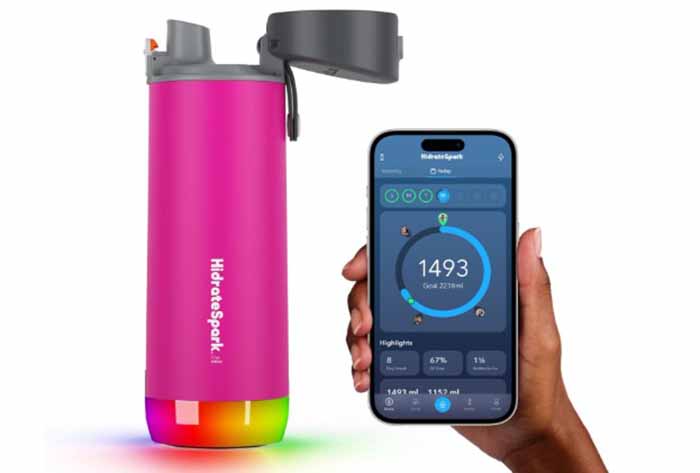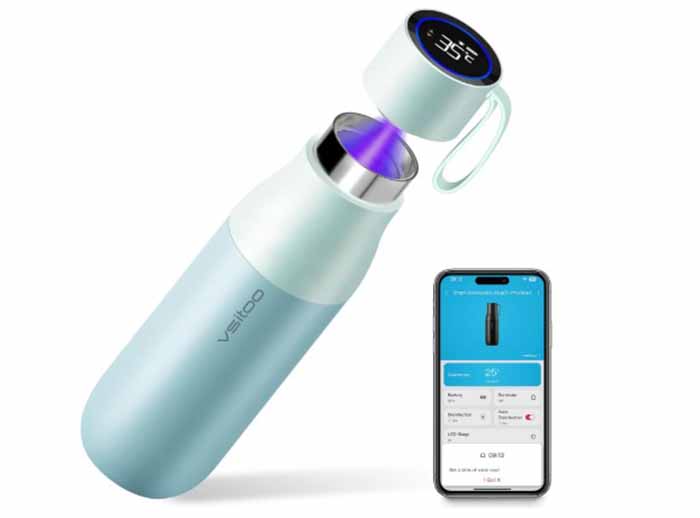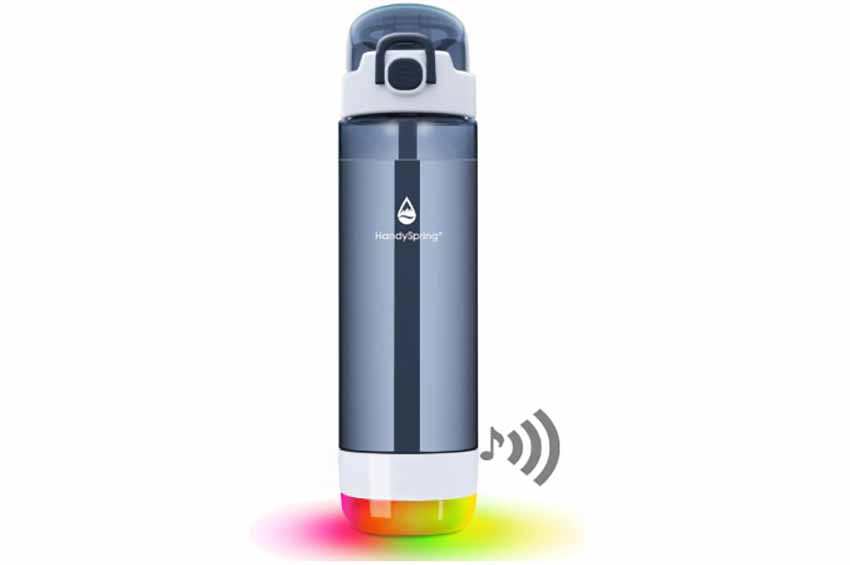It’s nice to be cautious and have concerns regarding the water bottle you drink from. There are people having questions about the durability, hygiene, and possible health risks of smart water bottles.
So, we are here with a detailed answer to the question- Is it safe to reuse smart water bottles?
Yes, reusing smart water bottles is safe, but there are things to consider. In this article, we will break down the facts, clear up myths, and share tips on how you can responsibly dispose of a smart water bottle.
Is It Safe to Reuse Smart Water Bottles?
Smart water bottles are designed to be reusable, but their safety depends on factors like material, maintenance, and overall condition. High-quality smart bottles made from stainless steel, aluminum, or BPA-free plastics are generally safe for long-term use, as they resist corrosion and do not leach harmful chemicals into the water.
However, poor-quality plastics or mixed-material bottles may degrade over time, increasing the risk of contamination.
To ensure your bottle remains safe for reuse, be very careful about regular cleaning. Over time, moisture and residue from drinks can create an environment where bacteria thrive and lead to health risks. Some bottles also contain silicone or other non-recyclable materials, which may not be as durable and can degrade faster.
Ultimately, proper maintenance, material selection, and timely replacement will make sure your smart water bottle remains safe for long-term use.
Materials Used in Smart Water Bottles
Most smart water bottles are made from stainless steel or BPA-free plastic, each with different safety considerations.

- Stainless steel bottles: Bottles that are made from food-grade 18/8 stainless steel are highly durable and resistant to bacterial buildup. They do not leach harmful chemicals into water, making them a safe option for long-term use. However, dents or scratches can compromise the insulation and hygiene of your water bottle.
- BPA-free plastic smart bottles: These bottles are lightweight and affordable, but they degrade faster than other materials. Over time, repeated washing, exposure to heat, and scratches can weaken the plastic and increase the risk of chemical leaching. So, you need to check up on your plastic smart water bottles frequently and replace them when needed.
How Long Should You Reuse Your Smart Water Bottles?
Smart water bottles are made from durable materials that are built to last. They can easily withstand impacts and are resistant to damage, making them great for on-the-go use. These bottles are also leak-proof and hard to chip.
However, it doesn’t mean you can use a smart water bottle forever. The longevity of a smart water bottle also depends on its construction materials. High-quality bottles made from durable materials like stainless steel or BPA-free plastics can last for several years with proper care.
However, over time, even these materials can degrade and lead to to structural weaknesses or chemical leaching into your beverage.
To ensure safety, we recommend you replace your BPA-free plastic reusable water bottle every 6 to 12 months. If it’s made of stainless steel, you can replace it every 1-2 years.
You should also replace your smart water bottle if you notice any of the following:
- Cracks or chips in the bottle
- Leaks
- A strange odor or taste
- Difficulty cleaning the bottle
Although smart water bottles may cost more upfront than disposable or regular water bottles, their long-lasting quality means you’ll get more value over time, as you can use them for many years.
Best Ways to Dispose of Your Smart Water Bottle
Properly disposing of your smart water bottle helps reduce waste and supports sustainability. Here are the best ways to recycle, repurpose, or safely discard your bottle when it’s no longer in use.

Check for Recyclable Materials
Many smart water bottles are made from stainless steel, aluminum, or BPA-free plastics, which can often be recycled. However, some components, such as silicone lids, electronic sensors, or mixed-material parts, may not be accepted in standard recycling programs.
Research your local recycling guidelines to determine which parts can be recycled and whether they need to be separated before disposal.
Look for Brand-Specific Recycling Programs
Check your local recycling guidelines or participate in brand-specific recycling programs. There are options like Hydro Flask’s Trade-In program, which can help ensure responsible disposal when your bottle reaches the end of its lifespan.
Repurpose or Donate
If your bottle is still in decent condition but no longer useful for you, consider repurposing it for storage, DIY projects, or gardening. You can also donate it to local shelters, schools, or community programs that accept reusable bottles.
Conclusion
Hopefully, you’ve got a proper answer to your question, “Is it safe to reuse smart water bottles?”
Reusing smart water bottles is safe if they are well-maintained and made from durable, non-toxic materials like stainless steel or BPA-free plastic. Be careful about regular cleaning, proper storage, and following manufacturer guidelines to help prevent bacteria buildup and material degradation.
Image Sources: amazon.com

